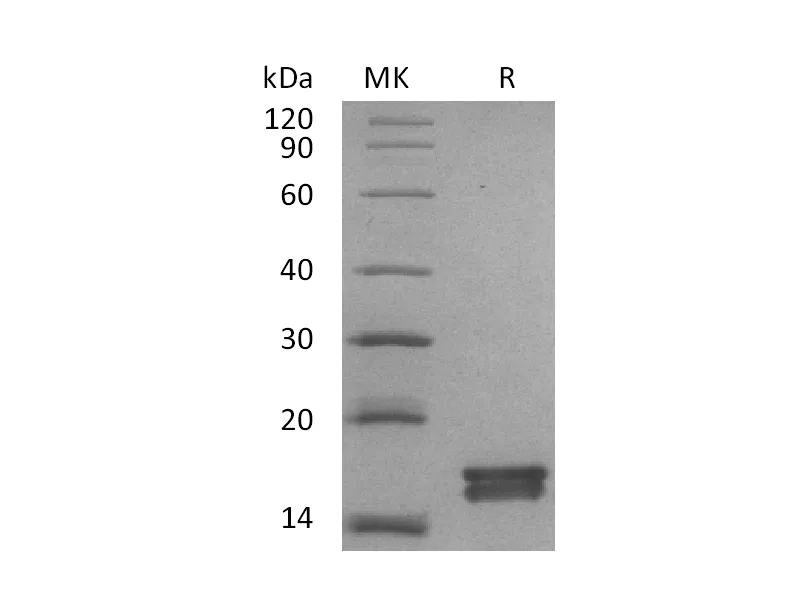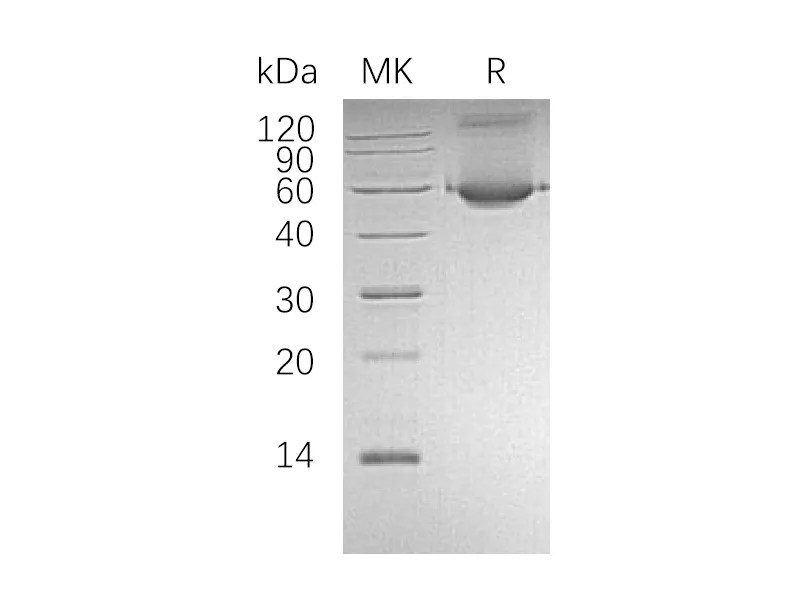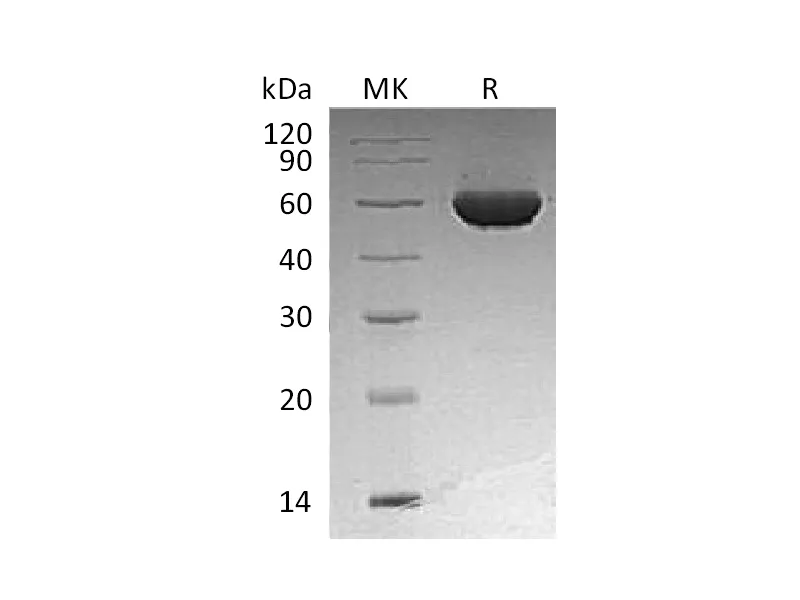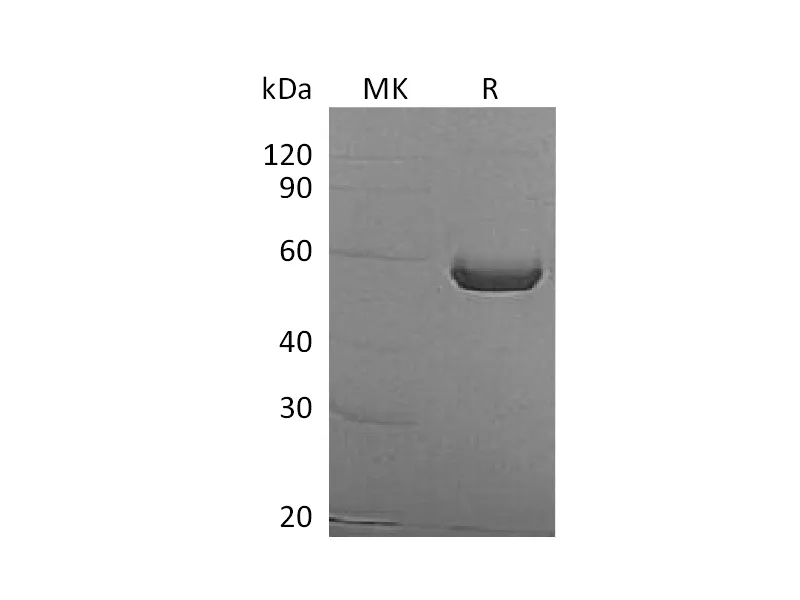Alternative Names
Mucin-1; MUC-1; Breast carcinoma-associated antigen DF3; Cancer antigen 15-3; CA 15-3; Carcinoma-associated mucin; Episialin; H23AG; Krebs von den Lungen-6; KL-6; PEMT; Peanut-reactive urinary mucin; PUM; Polymorphic epithelial mucin; PEM; Tumor-associated epithelial membrane antigen; EMA; Tumor-associated mucin; CD227; MUC1
Background
Mucin-1, is a membrane-bound protein that is a member of the mucin family. Mucins are O-glycosylated proteins that play an essential role in forming protective mucous barriers on epithelial surfaces. These proteins also play a role in intracellular signaling. This protein is expressed on the apical surface of epithelial cells that line the mucosal surfaces of many different tissues including lung, breast stomach and pancreas. MUC-1 exclusively located in the apical domain of the plasma membrane of highly polarized epithelial cells. MUC-1 can act both as an adhesion and an anti-adhesion protein. This protein may provide a protective layer on epithelial cells against bacterial and enzyme attack. MUC-1 participated in modulates signaling in ERK, SRC and NF-kappa-B pathways. In activated T-cells, MUC-1 influences directly or indirectly the Ras/MAPK pathway. MUC-1 promotes tumor progression and regulates TP53-mediated transcription and determines cell fate in the genotoxic stress response.
Note
For Research Use Only , Not for Diagnostic Use.




